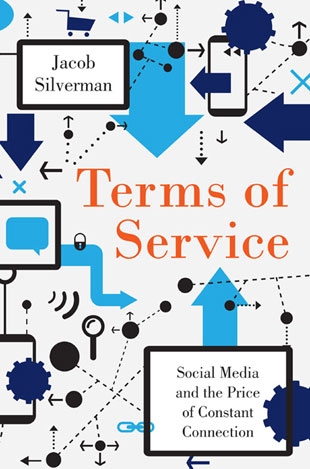"It's not just that the executives of social-media firms — along with their enablers in the media, the consulting circuit, and certain sectors of government — believe in this deliriously optimistic, social media-enabled future. They believe that they are the people, and the companies, to get us there. And so they treat themselves with utter self-seriousness, while handling their customers with a heavy-handed paternalism. Twitter cofounder Biz Stone has called his firm 'a triumph of humanity.' (Apple apparently agrees, publishing a profile of the company with the title: 'Twitter. Triumph of Humanity.') Mark Zuckerberg has claimed that connectivity is a human right and that Facebook could help stop terrorism. In her book The Boy Kings, Katherine Losse, an early Facebook employee who eventually became a speechwriter for Zuckerberg, recalls a day when Zuckerberg asked her to write an essay about 'companies over countries.' He explained: 'It means that the best thing to do now, if you want to change the world, is to start a company. It's the best model for getting things done and bringing your vision to the world.'
"In this worldview, with its tendency toward self-aggrandizement, there is little room for humility, much less irony. It is a fantasy that has the audacity to call itself empirical. Through the mountains of data these companies are collecting, they have come to believe that they know us. (Google's Eric Schmidt: 'We know where you are, we know what you like.') It's only a small step, then, for them to decide that they know what's best for us. And we've seen that play out already, both in the numerous daily reminders of people we might know or products we might like and, more important, in the larger strategic direction toward which these companies are moving. Google, for one, has been trumpeting Google Now, a personal assistant-like product that uses social media, search, calendar, GPS, and other data to provide you with information and suggestions throughout your day. You may not think you need a food recommendation while walking down a street of chic bistros, but Google Now — or the restaurant that paid it to push you a coupon — might decide as much. Google Now runs constantly and is always watching. As Popular Science, which named the product an 'innovation of the year,' declared: 'Instead of telling your phone what you want, the phone tells you.'
"The example of Google Now demonstrates the extent to which the environments that social-media companies are building and herding us into are fundamentally manipulative. Armed with data that we provide (sometimes unwillingly or unknowingly), Google and its competitors are engaging in nothing less than social engineering on a broad scale, pushing us to share and share under the pretense of improving our lives and building global community when, in fact, they want nothing more than to target us with ads that they deem 'relevant' and urge us to buy products from their partners. Whether they actually believe in their grand prophecies only matters insofar as it provides cover for their assaults on user privacy, identity, self-expression, and autonomy. Under the paternalistic hands of Google and Facebook, we have been building digital lives only to give them away wholesale, all because the services were convenient and free and we told ourselves that we didn't know better."
